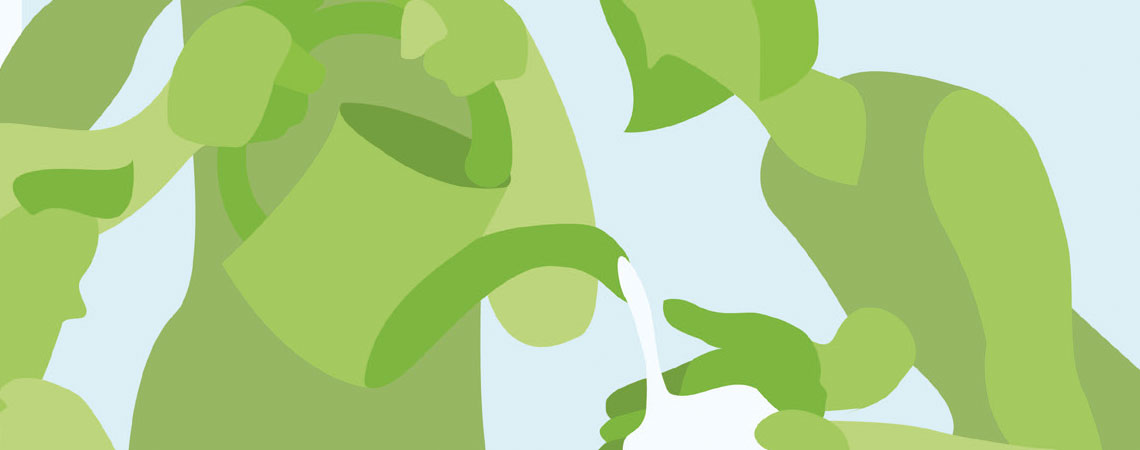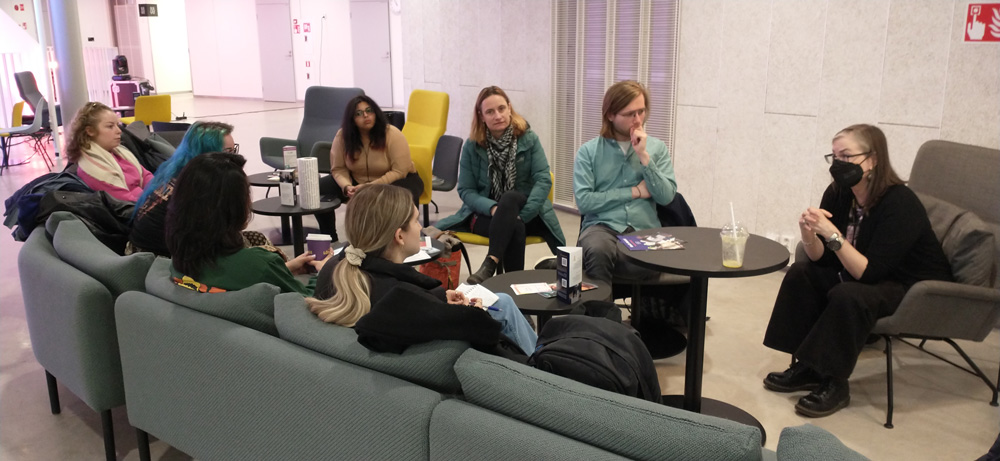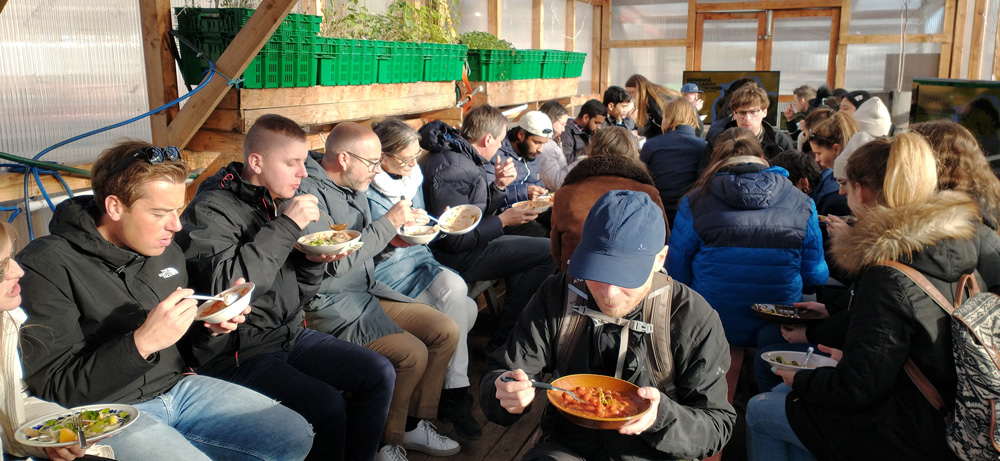
Commoning during the BIP in Helsinki
Voices from the organisers and participants (Sandra Bos, Kaisa Kanerva & Sarah Dobjani) of the Blended Intensive Program in Helsinki in 2022.
Sandra Bos, Amsterdam University of Applied Sciences:
A week of Interdisciplinary and international commoning took place from 3-7 May at Metropolia, Helsinki. Here 40 students, 8 lecturers and 12 stakeholders of the prepared design challenges gathered for the first Erasmus Blended Intensive Programme (BIP) of our U!REKA Lab: Urban Commons. And it sure was intensive – and blended. Prior to this week in Helsinki the master and bachelor students from about 10 different countries met during two webinars and worked in mixed groups on case studies concerning commons initiatives in their own city or country. This made it easier to start the intensive course: people already knew the basics of urban commons and they knew each other.
The programme contained every day a series of well selected lectures on different aspects of (Finnish) commoning. After lunch it was time for the working groups. Each group had been given an urban commons design challenge in the city of Helsinki (communal gardening, livable streets, multicultural services, gamified co-housing), where they would apply the design principles of urban commons. In 3 days’ time the students of among others urban planning, land surveying, architecture, urban management, public administration, social work, and civil engineering worked hard on implementing the principles of urban commons in their case studies. And this was not easy! The canvas of Martijn de Waal helped to ask the right questions and to structure the process. But how to select possible interventions and have interviews with local stakeholders? Thanks to the mix of expertise of the students, the critical input of the teachers (Kaisa, Barbara, Iva, Angelika, Stan, Martijn and Sandra) and the stakeholders they managed to come to very creative and useful outcomes. In organizing the commons, digital means as apps and Facebook were used to bring people together. The presentations showed the added value of commoning especially in social (contact, mutual respect) and ecological fields.
During our ‘leisure’ time we went on excursion to special historical and commons places in Helsinki: fortresses, sauna and commons gardens. We have seen, enjoyed and discussed them all! Thanks to the wonderful organization and hospitality of Metropolia and especially Kaisa Kanerva, we had a special, instructive and pleasant week in which we have learned a lot from Helsinki and from each other. Hopefully we have in return enriched Helsinki with our ideas and designs regarding urban commons.

Kaisa Kanerva, Metropolia University of Applied Sciences:
Indeed you have! For example Metropolia University of Applied Sciences will use the material that students have created about a communal garden on Myllypuro campus for fundraising applications already this year. Negotiations about implementing suggestions that students created in order to get more livable streets in Kallio are going on with the City of Helsinki, where e.g. New European Bauhaus or participatory budgeting can be possible means for it. Ministry of the Interior is currently in the process of developing its services for the Ukrainian refugees, and students’ service proposals will therefore be scrutinized. Students, who planned the future of the Pukinmäki real estate for gamified co-housing, got into the local newspaper already during their site visit and there will still be a new article about their designs, which will surely shed more light to the plans of the city for this property. Great work in such a short time!

Sarah Dobjani, Frankfurt University of Applied Sciences:
Coming from Albania, a country with a communist past, this workshop was like a breath of fresh air to say the least. For 45 years Albania was under a harsh authoritarian regime masked as communism, where the basic principles were equality among citizens and the eradication of private property. Therefore, nowadays, most of Albanians associate collectivism with dictatorship and society has shifted in the direction of individualism. In fact, if this workshop was held now in Albania, it would for sure cause a lot of controversies, as Albanians feel very defensive when it comes to owning something collectively, as they feel this deprives them from their right of private property. For me it was inspiring to see that urban commons can actually work in a democratic setting. Moreover, the many examples that we were presented with, showed the power that people can have if they unite, that leads to real change if the intentions are pure.

